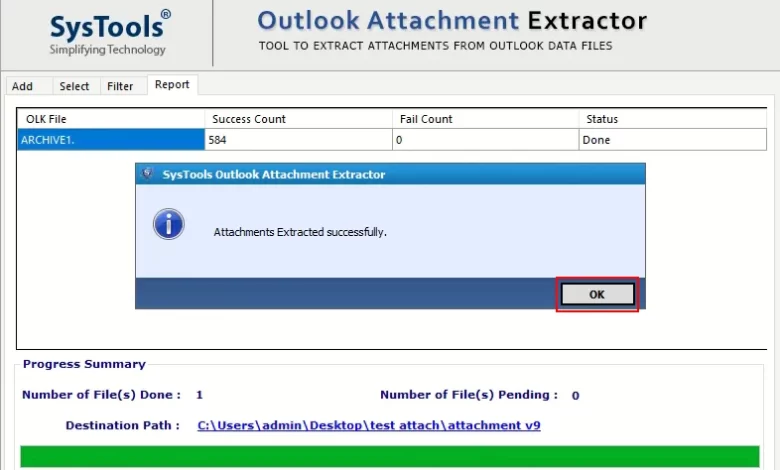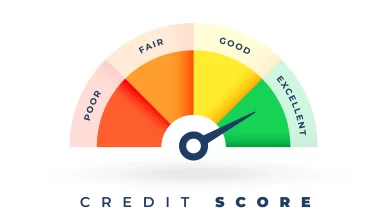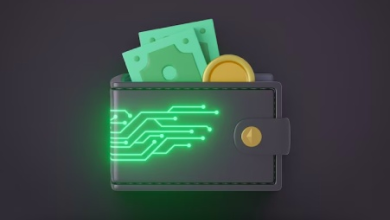How to Extract Outlook Attachments to a Local Folder?

Have you come across an example of deleting Outlook PST attachments to a local folder? Do you spend a lot of time looking for a solution to extract Outlook attachments to a local folder? If yes, then no doubt just look at this blog. Here we have put together a results-oriented approach that will easily meet your needs.
In this digital era, Microsoft Outlook is one of the most used email applications for users to manage their personal information. Whether you are a family, individual or customer, his work will not let you down. There are other benefits that encourage you to choose Microsoft Outlook as your email client to manage your emails better.
However, when we talk about Outlook email, users can also use it to attach files and attachments and share them with others. However, sometimes Outlook files are difficult to access due to their size and accessibility. Therefore, you should always delete Outlook links to a local folder to control the impact of large Outlook files.
In this blog, we will try to cover all the options and the best way to download Outlook attachment to your local drive. Before starting with the steps to download attachments from extract Outlook attachments to a folder.
Why Need to Delete Attachments from Outlook?
Due to the large Outlook files (which contain large attachments), users may encounter various reasons.
- Outlook data files can be corrupted or damaged due to continuous problems.
- When using Outlook, errors often occur that reduce performance and productivity.
- Users cannot send and receive emails easily.
- Outlook may also crash and close the program unexpectedly.
How to Extract Outlook Attachments to a Local Folder – Manually
Download email attachments. This is the most common way to extract email attachments from Outlook. This method is simple, but it only extracts attachments from one email at a time. Let us see how it is done.
- Start Or Open your Microsoft Outlook program
Open the email you want to delete the attachment from
Hover over one of the links and right-click on it. Then select the Save all attachments option from the drop-down list.Next, the Save All Attachments window opens. Click OK to continue
Next, browse to and specify a folder on your system to save this link via email. After specifying the path, click on the OK option to complete the extraction
Next, the Save All Attachments window opens. Click OK to continue
Next, browse to and specify a folder on your system to save this link via email. After specifying the path, click on the OK option to complete the extraction.
So the process is simple, but to extract attachments from multiple emails, you need to repeat this process again and again, which can be a daunting task for users.
Export Attachments from Multiple Emails With VBA Script
Many Outlook users use a VBA script to automate the process of extracting attachments. Moving email attachments to a specific folder on your system requires VBA macro code and VBA script. This process seems a little long, but it allows you to extract attachments from different emails. However, be careful when running or loading a VBA script.
Drawbacks of the Manual Processes
Both models have some issues that users should be aware of while performing the removal of Outlook email attachments, such as –
- Slow processing
- Lengthy processes
- Complex macros
- Fewer customization options and flexibility
Outlook to a specific folder, let’s talk about the problems that users may face due to the large size of PST files.
Automatic Solution to Extract Outlook Attachments to a Local Folder
If the manual method is boring for you, you can use Outlook Attachment Extractor Software, which allows users to extract Outlook attachment files from emails directly into a local folder. The utility supports very large Outlook data files and allows users to easily extract attachments from the files. With this application, you can easily download attachments to the desired location. This program has amazing features as it can seamlessly save attachments not only from PST files but also from OST, BAK, MSG, OLK and OLM files. Take advantage of advanced features such as selective extracting of folder attachments, date filter, size filter and more. You can also select relevant data items such as emails, contacts, tasks, etc. to extract Outlook file attachments. The application also allows you to include or exclude file types from the utility panel. Best of all, it is compatible with all versions of Microsoft Outlook and Windows operating systems.
Complete Guide to Extract Multiple Outlook PST Attachments to a Local Folder
- First, Download and Launch the software on your Windows computer

- Now add the Outlook file eg. PST/OST/BAK files using the Add file or Add Folder option

- Depending on your needs, you can use the options you want such as extracting attachments from all folders or only selected folders

- In the filter wizard, use the different options as shown in the image below. This includes options to remove attachments from the file selection, date filtering options, and more

- Then click the Extract button to save the Outlook email attachment to a local folder

Conclusion
This blog describes the same manual and automatic solution to extract Outlook attachments to a local folder. However, the manual method takes a lot of time due to the complicated steps involved. Also, sufficient technical expertise is required to perform the manual steps. Due to all these shortcomings, we always recommend users to use the appropriate automation solutions mentioned in this article.





